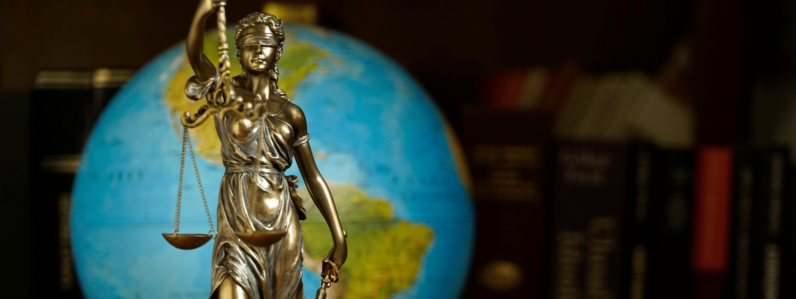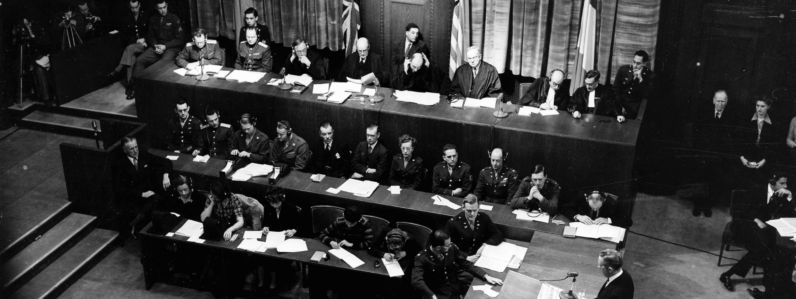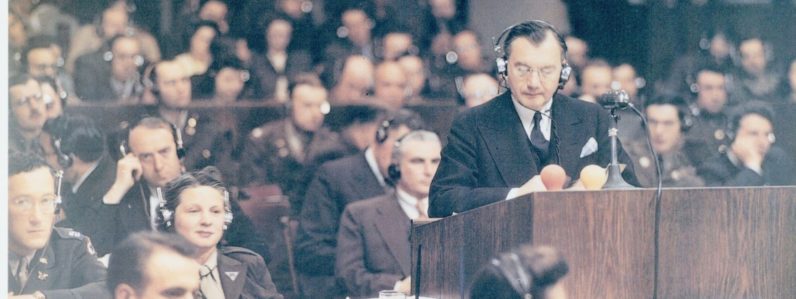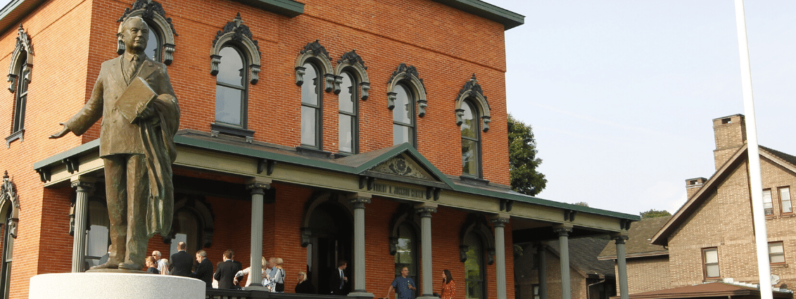International Prosecutors, Ambassadors, diplomats, and legal scholars from around the globe came together in the name of humanity on August 31st and September 1st at Chautauqua Institution, a renowned arts and cultural community located in upstate New York, near Jamestown. The International Humanitarian Law Dialogs, hosted by the Robert H. Jackson Center, Jamestown, NY, is a historic gathering of renowned international Prosecutors from The International Criminal Court, The International Criminal Tribunal for the former Yugoslavia, The International Criminal Tribunal for Rwanda, The Special Court for Sierra Leone, Special Tribunal for Lebanon and The Extraordinary Chambers in the Courts of Cambodia, together with leading professionals in the field of International Humanitarian Law. The ninth annual proceedings offered attendees a look at the impact of modern international law on war crimes and crimes against humanity. This year’s theme, The Wrongs We Seek, commemorated the anniversary of the Srebrenica Massacre (1995) and the opening of the International Military Tribunal at Nuremberg (1945).
Highlights from this year’s Law Dialogs included keynote speakers and roundtable discussions updates from the international prosecutors, student sessions and breakout “porch sessions” on selected topics. The culminating event was the issuance of the ninth Chautauqua Declaration by the international Prosecutors in attendance.
Developed by the Prosecutors during the two-day symposium, the Chautauqua Declaration is a Statement that calls on all nations to pursue justice as a matter of law. It reaffirms the original Chautauqua Declaration, issued in 2007, which stated in part, “The challenge for States and for the international community is to fulfill the promise of the law they created; to enforce judicial decisions; [and] to ensure the arrest and surrender of sought individuals….”
The Dialogs are held annually to honor these ideals, and to advance the field of International Humanitarian Law. Signing the 2015 Declaration were Serge Brammertz, International Criminal Tribunal for the Former Yugoslavia; David Crane and Brenda J. Hollis, Special Court for Sierra Leone; Richard Goldstone, International Criminal Tribunal for the former Yugoslavia and Rwanda; Hassan Jallow, International Criminal Tribunal for Rwanda; Nicholas Koumjian, Extraordinary Chambers in the Courts of Cambodia; David Kinnecome, Special Tibunal for Lebanon; James Stewart, International Criminal Court. The issuing ceremony was moderated by Betsy Andersen, American Bar Association.
Chautauqua Declaration
In the spirit of humanity and peace the assembled current and former international prosecutors and their representatives here at the Chautauqua Institution…
Recognizing the continuing need for justice and the rule of law as the foundation to international peace and security, and cognizant of the legacy of all those who preceded us at Nuremberg and elsewhere:
Commemorate the late Sergei Magnitsky as the seventh recipient of the Joshua Heintz Award for Humanitarian Achievement for his important and impressive service to humanity;
Note the seventieth anniversary of the opening of the International Military Tribunal at Nuremberg;
Note the imminent completion of the judicial mandate of the International Criminal Tribunal for Rwanda and commend its contribution to the development of international criminal law, and to promoting peace, reconciliation, and accountability for crimes in Rwanda;
Note that concerns expressed in past declarations remain to be addressed, namely:
The failures of states and international organizations to fulfill their obligations;
The upsurge in violence against civilians, the general lack of accountability for these crimes, and failures to enforce international humanitarian law;
The continued prevalence of sexual and gender-based violence and crimes against children, and the lack of accountability for many of these crimes;
On occasion of the twentieth anniversary of the genocide at Srebrenica, deplore the targeting of groups based on ethnicity, nationality, race, and religion;
Condemn the increased destruction by armed groups of cultural and religious objects, which are the common heritage of humanity, and emphasizing the need for accountability for these serious international crimes;
Recognize the importance of the residual mechanisms to carry out the continuing legal obligations of the international tribunals and courts as they close or approach closure;
Remind the states of their obligation to ensure the effective functioning of the international judicial institutions they have created;
And now do solemnly declare and call upon all members of the international community to keep the spirit of the Nuremberg Principles alive by:
Ensuring universal accountability and equal application of international criminal law to all;
Ending impunity for the gravest crimes by refusing to countenance amnesty or immunity;
Ensuring accountability for all crimes, especially sexual and gender-based violence and crimes against children;
Ensuring that domestic institutions have the necessary legal framework, capacity, and will to discharge their primary responsibility to investigate and prosecute international crimes;
Discharging their international and treaty obligations to cooperate with the international criminal courts, tribunals, and residual mechanisms and in particular to locate, arrest, and to surrender all fugitives accused of international crimes;
Providing sufficient resources for all international courts, tribunals, and residual mechanisms to achieve their respective mandates, including the ability to meet their obligation to protect and support witnesses and those made vulnerable by their cooperation, and to ensure justice is done and seen to be done.
Signed in Mutual Witness:
James K. Stewart (for) Fatou Bensouda, International Criminal Court
Serge Brammertz, International Criminal Tribunal for the former Yugoslavia
David M. Crane, Special Court for Sierra Leone
David Kinnecome (for) Norman Farrell, Special Tribunal for Lebanon
Richard Goldstone, International Criminal Tribunals for the former Yugoslavia and Rwanda
Brenda J. Hollis, Special Court for Sierra Leone
Hassan B. Jallow, International Criminal Tribunal for Rwanda
Nicholas Koumjian, Extraordinary Chambers in the Courts of Cambodia







